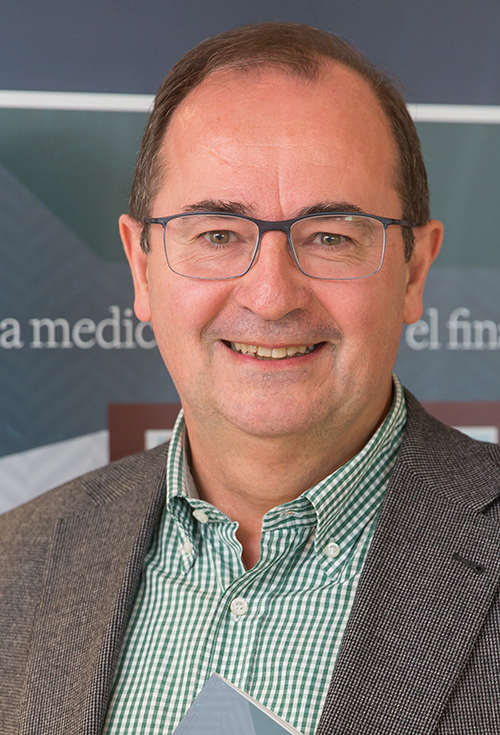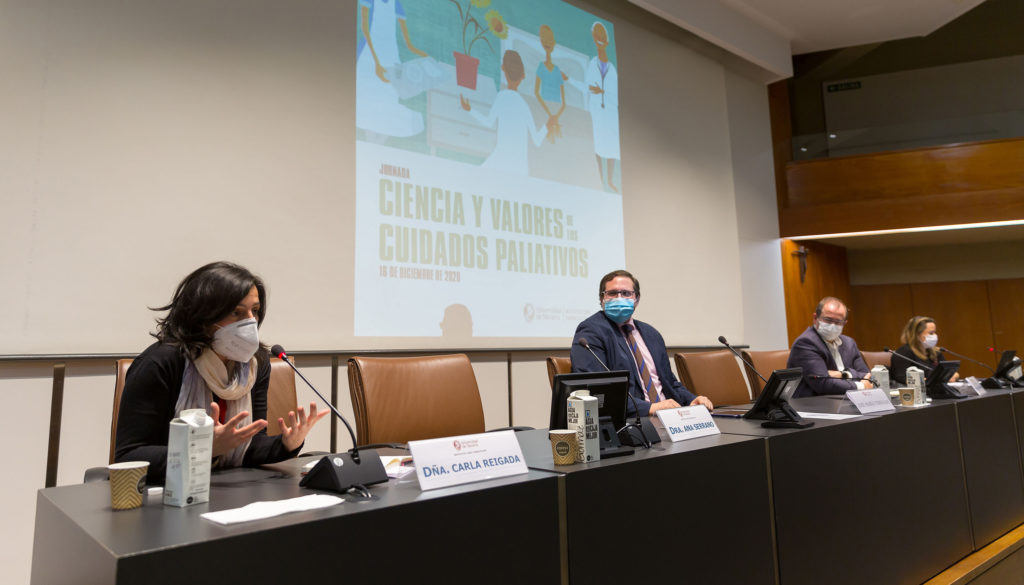The scarce presence these days of physicians specialized in palliative care is striking. Dr. Carlos Centeno, director of Palliative Medicine at the Clínica Universidad de Navarra, claims: "To the patient who asks for help, we can give it. Let us be allowed to help, to relieve, what we doctors have done all our lives."
"Today euthanasia is demanded in society, even in law, for many things that have a solution. Medicine also has many things to say in the face of suffering that at times can be intolerable. Medicine has something, and I know it is effective, because I have seen it in action so many times".
This is how the Dr. Carlos Centeno, Director of Palliative Medicine of the Clinic and of the Atlantes research team of the Culture and Society Institute of the University of Navarra.. "Certainly some patients may come to ask for help that we can't give. That can happen. In our country it is going to happen in the near future, it may happen that a patient may ask us for help to advance death, and a physician cannot do that, that is what I think. A physician is there to serve life, and he is there to alleviate. The 'ethos' of medicine is to be at the patient's side to relieve him. We exist because there are people who suffer"..
"Our society, for thousands of years, has spawned a profession, or several professions, of people dedicated to alleviating human suffering." adds the palliativist. "Ojo, we also like to cure. We like to heal when we can. We feel like doctors there too. But where we really identify ourselves, where we see our identity, is when we relieve those we can't cure.. In suffering we are still there to alleviate"..
Dr. Centeno, with many years of experience in Palliative Medicine, addresses the difficulties. Especially of understanding and a good understanding of what Palliative Care is.. "There are many things on which we all agree. But there may be things on which there is no agreement, points of view that concern principles or the way of understanding society, or the way of understanding autonomy without any other consideration; but there are many other principles on which we will agree. And, of course, we are going to agree on how to act, on how to act. Let us be there; we do not want to confront anyone, we do not want to challenge anyone; we do not want to contradict those who think differently from us; no. We have to be physicians, we can help. We have to be doctors, we can help.
Comprehensive care
Last Wednesday, the specialist was a speaker, together with members of his team, at a conference organized by the Core Curriculum Institute of the University of Navarra, titled Science and values of palliative care, with more than five hundred participants.

In one of his speeches, Carlos Centeno played a video of an interview conducted by Jordi Évole on laSexta Dr. Carlos Gómez Sancho, who commented, among other things, that the patients who had requested euthanasia were very few: three or four out of many thousands.
When asked what pain medication they were taking, they said two or three Nolotil a day. As soon as they were given some morphine, and treated appropriately, the desire to die disappeared, the doctor said.
This point was addressed at the conference by Dr. Ana Serranowhich analyzed the main myths of palliative care, as a treatment intended only for dying patients, in the last moment of their life. In reality, he said, they are part of the integral process of patient treatment, where they should "The patient's choice, even at home, can be made by all professionals and in the place of his choice. Contrary to the myth, palliative care does not consist of being drugged with morphine until the end", noted.
The advancement of specialized palliative care, ie, "treat patients earlier", is another aspect that Centeno insists on, based on various studies on quality of life in different groups of patients. Moreover, he adds, patients with early palliative care live on average several months longer. His summary is "the sooner the better".
The specialist recalls that more than 20 clinical trials analyze how palliative care improves the patient's quality of life and reduces anxiety and depression.improving their mood. "Palliative medicine does not focus only on treating the disease, but offers comprehensive care, including the family." points out.
Euthanasia and palliative care
Dr. Centeno calls for understanding of the sick and their families who ask for help in dying. And at the same time he explains that "When you listen to them openly, what they ask for is the security of assistance, help to get rid of pain, fear or anguish, and not to prolong their suffering. And in all this we can help, states.
In their conversation, the medical director qualified as false the expression palliative care versus euthanasia'.. In his opinion, "What is optional is to euthanize someone; this person will be euthanized, this one will not, that is optional. Some want it and others do not want it. However, palliative medicine is not optional. Palliative medicine is obligatory..
He went on to elaborate on the argument: "Palliative medicine is for everyone, for everyone who has intense suffering from a serious illness. It is advanced end-of-life medicine. What cannot be done is not to apply it. That is why palliative care is for everyone, not for a few, and they are mandatory. There is no one, doctor, nurse, who can approach someone who is suffering at the end of life and not do what a palliative medicine team does, which is to take care of them in a comprehensive way, work as a team with others, alleviate the symptoms they are having, provide wellness with quality of life.".
The conference highlighted the cost savings of palliative care in health care, and the lack of investment in palliative medicine in Spain. compared to European countries.





 Bishops warn of social failure of euthanasia law
Bishops warn of social failure of euthanasia law





